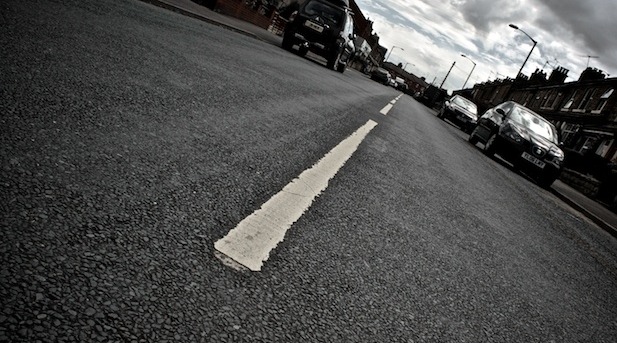The Government is being asked to contribute at least £5m towards the cost of averting a crisis on the roads of North Yorkshire.
The Leader of North Yorkshire County Council has written to the Secretary of State for Transport, Patrick McLoughlin, appealing to him at least to match a £5m pot of money which has been set aside to tackle urgently needed highways repairs. The Leader, Councillor John Weighell, hopes to raise the issue when he meets Mr McLoughlin next week in London.
In a letter to Mr McLoughlin, Councillor Weighell reveals that a quarter of the county’s minor roads – which cover a distance of 5,000 kilometres and constitute more than half the network – are in urgent need of repairs. He says the issue “is rapidly becoming a crisis.”
The Council has declared the state of the highway network a major priority, and has allocated an extra £5m towards the repairs, even though it is facing severe financial cuts across the board
County Councillor David Simister (Ukip, Harrogate Bilton & Nidd Gorge) said: The motorists of North Yorkshire are getting short changed by the Government. We pay though the nose for fuel and road tax, yet very little of the this revenue goes on improving our roads.
If there isn’t investment, then the number of claims being made for vehicles being damaged by pot holes will sky rocket.
Councillor Weighell acknowledges some increased funding from central Government, but says the annual allocation of £28m still falls far short of the estimated annual expenditure of £60m required to address the problems.
“We are considering investing more of our reserves if you are prepared to invest with us,” he wrote in his letter to Mr McLoughlin.
“Insufficient funding for highway maintenance is not a problem unique to North Yorkshire, but I believe we feel the pain particularly badly. North Yorkshire is the biggest local authority in England by area and has the third largest road network. The topography of North Yorkshire mens we are vulnerable to extreme weather. Our dispersed population and our rural economy make our minor roads particularly important. Added to this, the cars, HGVs and agricultural vehicles are getting heavier and larger and this has increased their impact on the condition of these minor roads.”
An analysis prepared by the Council’s highways officers shows that the maintenance backlog for the entire network is approximately £322m, more than half of it within the ‘category 4’ minor road classification. Even if the backlog was removed, the council estimates that it would still require some £60m a year simply to maintain the highways in good condition.
Councillor Weighell added: Of course we are not just throwing money at the problem. New and improved systems allow better management and ensure we get the best possible value for money. This has allowed us to arrest the deterioration of our most heavily used roads. However, this has been at the expense of our minor roads.







